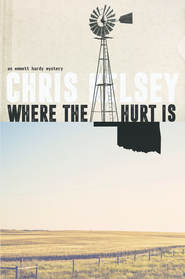 For most of the last twenty years, I've downplayed my status as a writer, mainly because I considered myself primarily a jazz musician. Since I wrote jazz criticism, I didn't want my secondary activity interfering with my first. That was an exercise in futility or naivete, take your pick. There was no way I could do one without having it affect the other, and of course my divided loyalties led to many conflicts. A few years ago, I essentially stopped writing altogether, after having angered one musician so much, he began cyber-stalking me and trying to hack my website. Making enemies is exhausting, especially if it inevitably happens by accident and you don't have a taste for conflict. It did and I didn't, so I stopped. At the time, I figured that to stop writing about jazz meant to stop writing completely. Except for occasional political blogging and the odd lengthy Facebook post, that was the case for quite a while. That is, until I realized I had something to say that couldn't be said through the bell of a saxophone. Three years ago, I started a novel. The working title was An Ocean of Fireflies, but an agent told me she thought I needed something less poetic, given the nature of the book. I agreed, and changed the title mid-novel to Where the Hurt Is. So it remains, three months prior to publication. The story is set in a small fictional Oklahoma town in 1965. The protagonist is the local police chief, Emmett Hardy (a name with musical connotations, as the savviest jazz fans will recognize). I've long been a fan of noir, both the film and print varieties. Hardy's a compendium of all the literary cops and private eyes I've loved over the years, from Sam Spade and Phillip Marlowe to Bernie Gunther and John Rebus, not to mention my two favorite Harrys: Bosch and Hole. And many others. Emmett shares certain of those characters' positive qualities and as many flaws, except instead of policing an urban area, he works in a town of less than 2000 people, located far from anything like a good-sized town, never mind a city. That's where my love of another character—the Legendary Lieutenant Joe Leaphorn, created by my fellow-Okie Tony Hillerman and kept active long past retirement age (and thank goodness for that) by Tony's daughter Anne—comes in. The Leaphorn/Chee/Manuelito books are set on the Navajo reservation in the Four Corners area in the deep southwest. From those books I learned (I hope) how to make rural setting as much a character in a novel as San Francisco in the Hammett stories and Edinburgh in Ian Rankin's Rebus mysteries. I'm not going to get into my book's plot here. There's a synopsis on the front page of chriskelsey.com, if you're interested. But I do think it bears saying: big cities don't have a corner on crime. Far from it—as anyone who grew up in the Oklahoma of my youth will remember—so when I decided to write a novel, it was natural for me to channel memories of that time and place. That said, I didn't start this post to talk about the novel, but rather to explain why I redesigned my website, which gets back to my original point about being both a writer and a musician. My old site was all about the music. These days, I'm focused at least as much on the written word as on the musical note, and I needed my website to reflect that. And now it does. Part of the reconfiguration includes my new Bandcamp page, where I now offer downloads of five of the albums I produced for my own Tzazz Krytyk label over the years. On the website itself, you can purchase limited-edition CD versions of those albums (and I do mean limited edition—for most, fewer than 100 copies exist, and I don't plan on producing more). If all goes according to plan, by this summer none of this music will be available for streaming anywhere, making Bandcamp and my website the only place to hear it. I'm frankly tired of giving it away, and if that means fewer people will hear it, well, that's the way it's gotta be. I hope you like the new site. If there's anything you'd like to see or hear me exegete on, feel free to drop me a line.
1 Comment
|
 RSS Feed
RSS Feed